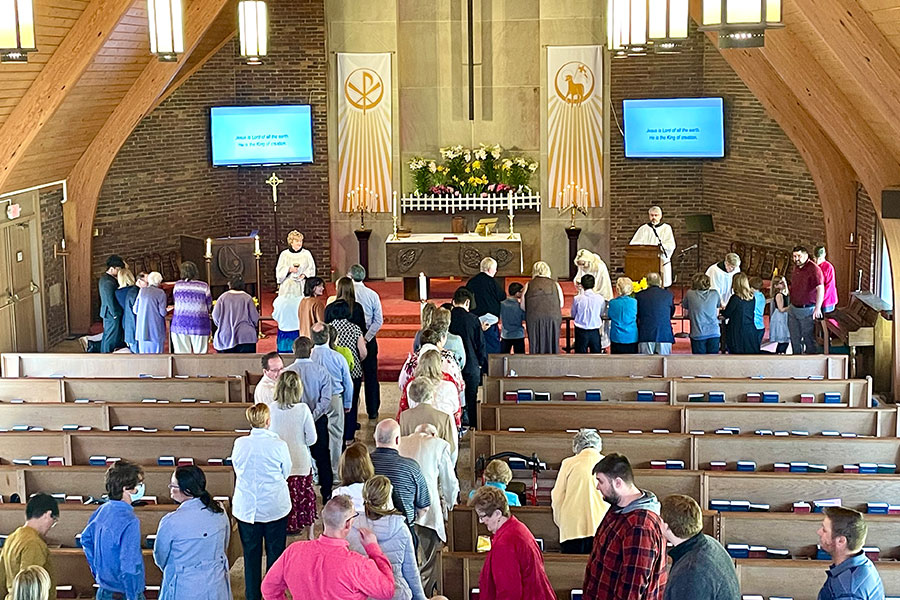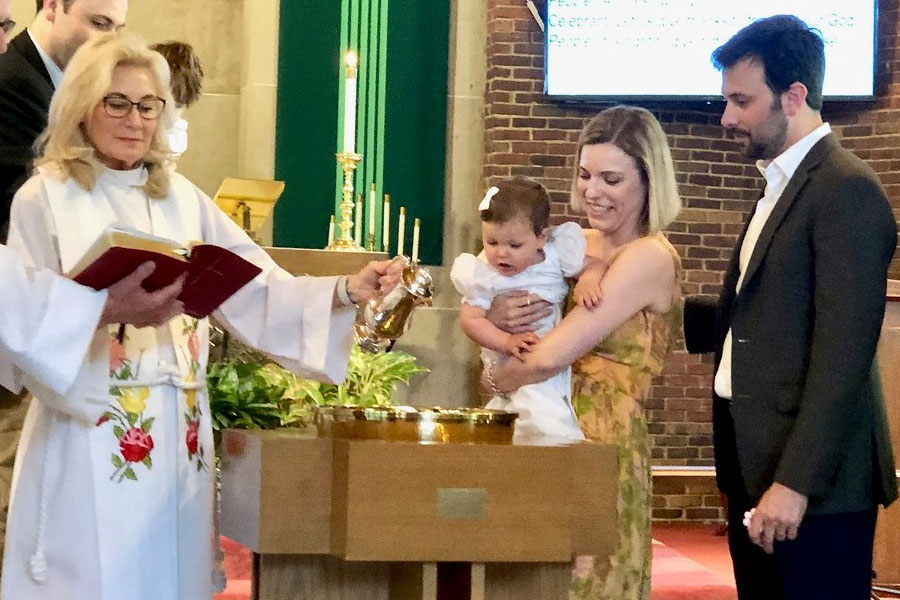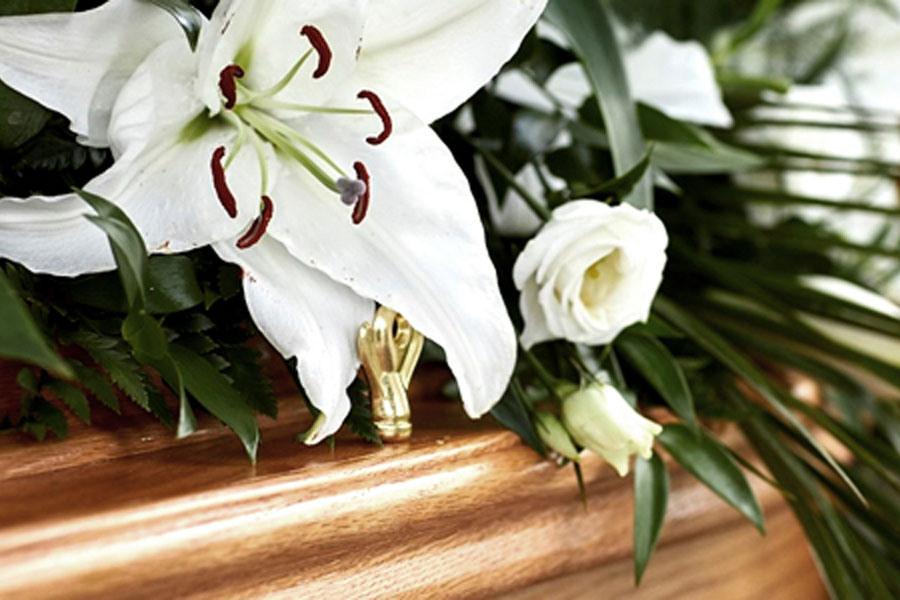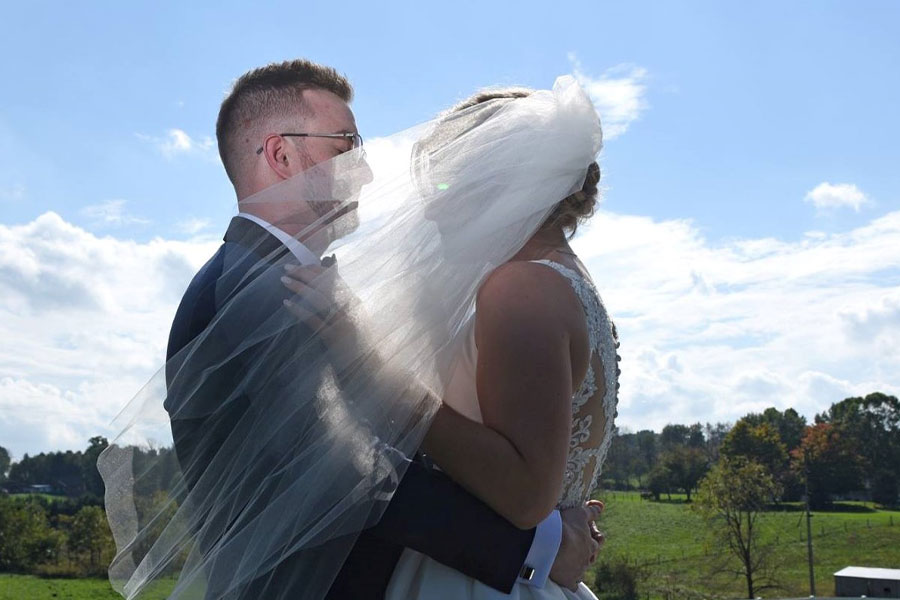Sunday Services
8:30 and 10:00
Join us every Sunday morning as we gather together as believers for worship.
The early service at St. Matthew's is more intimate and slightly less formal than the later one, but no less meaningful. The same liturgy and messages are used, and Communion is part of the service. Generally there is no music.
Our 10:00 service is somewhat larger than the early one. There is a processional, and you will see church members serving as acolytes, readers, chalice bearers, worship leaders, and musicians. We follow the Episcopal liturgy for the scripture of the week, and the message is based on the scripture. Holy Communion is practiced each week. We use a projection screen for ease of following along with the service. The 10:00 service is also available on Zoom if you can't get to church
Love the Lord your God with all your heart and with all your soul and with all your mind and with all your strength.
Mark 12:30
HOLY COMMUNION
Holy Communion is the family meal for Christians and a foretaste of the heavenly banquet. We have Communion together to remember that Jesus came to us as a human, lived for us, and died so that we would never have to. In the Episcopal Church, the Communion Table belongs to God, not to us. We invite everyone, no matter where they are on their spiritual journey, to participate with us. At St. Matthew's, we come forward to the altar for Communion. As you are comfortable, you may receive a blessing, receive the wafer, and dip it in the common cup of wine.


Baptism
St. Matthew’s Episcopal Church joyfully welcomes new members into the Body of our Lord Jesus Christ through the sacrament of Holy Baptism, which we give to both infants and adults.

Funerals
At St. Matthew's, we acknowledge that a Christian funeral is a reverent mix of grief and joy. Joy, because we are confident in the promise of God that “neither death, nor life, nor angels, nor rulers, nor things present, nor things to come, nor powers, nor height, nor depth, nor anything else in all creation, will be able to separate us from the love of God in Christ Jesus our Lord.”

Weddings
Congratulations! We welcome the opportunity to discuss your wedding with you. In the Episcopal tradition, a wedding is a sacrament and one of the moments, like baptism or communion, that bind the couple and the community together by the grace of God. The Episcopal church recognizes and performs all weddings, including those who were previously married and same-gendered couples.
Advent
Advent is the beginning of the church year. It starts with the fourth Sunday before Christmas and is a time of preparation and expectation for the Lord's birth and his final coming to earth.
Christmas Eve
On the night before Christmas, we light the final Advent candle and complete our preparation for Christmas. At St. Matthew's we have a candlelight service, which is one of our favorite traditions.
Christmas
On December 25 we celebrate the FIRST day of Christmas, when the Word of God came to earth in the form of Jesus Christ. The Christmas season lasts twelve days until January 5.
Epiphany
Sometimes called "Little Christmas" or the "Twelfth Night", Epiphany marks the coming of the Wise Men to Jesus and the first manifestation of Christ to the peoples of the earth. The winter solstice was kept on Jan.
Ash Wednesday
Ash Wednesday marks the beginning of Lent, the forty days preceding Easter. The ashes are a sign of penitence and a reminder of mortality. In the Episcopal Church, the marking of ash on the forehead is optional.
Lent
Lent lasts for 40 days, in imitation of Christ's 40 day fast in the wilderness. Lent is a time of self-examination and repentance leading up to Easter.
Palm Sunday
Palm Sunday is the first day of Holy Week, when Jesus' triumphal entry into Jerusalem and his crucifixion are recalled. At this service we pass out palms and sometimes process into church as a group.
Maundy Thursday
This is a solemn and quiet service, observing the Last Supper of Jesus and his betrayal. It is ususally an evening service, after which the altar is stripped and all decorative furnishings are removed from the church.
Good Friday
The Friday before Easter we commemorate Jesus' crucifixion. We read the Gospel of John. At St. Matthew's we sometimes join with other area churches for this service.
Easter Sunday
Faith in Jesus' resurrection on the Sunday or third day following his crucifixion is at the heart of Christian belief. In many ways, it is what separates Christians from the other world religions. We celebrate Easter with songs of joy and praise.
Ascension Day
Ascension Day is 40 days after Easter, and marks the conclusion of Jesus' appearances on earth to his followers after the Resurrection, and is the final elevation of his human nature to the divine glory of God.
Pentecost
50 days after Easter, the Holy Spirit came into the hearts of early Christians, fulfilling a promise Jesus made. We wear red to church on Pentecost to signify the work of the Spirit in our lives.
Trinity Sunday
The Sunday after Pentecost, we celebrate the Holy Trinity of God the Creator, God the Son, and God the Holy Spirit.
All Saint's Day
All Saint's Day is a day to remember all saints, known and unknown, and to remember those in our lives who have passed in the last year.
Blessing of the Animals
This October service celebrates St. Francis of Assisi, the patron saint of animals. We bring our pets to church to receive a blessing and to celebrate the human-animal bond.
Glossary definitions provided courtesy of Church Publishing Incorporated, New York, NY,(All Rights reserved) from “An Episcopal Dictionary of the Church, A User Friendly Reference for Episcopalians,” Don S. Armentrout and Robert Boak Slocum, editors.
